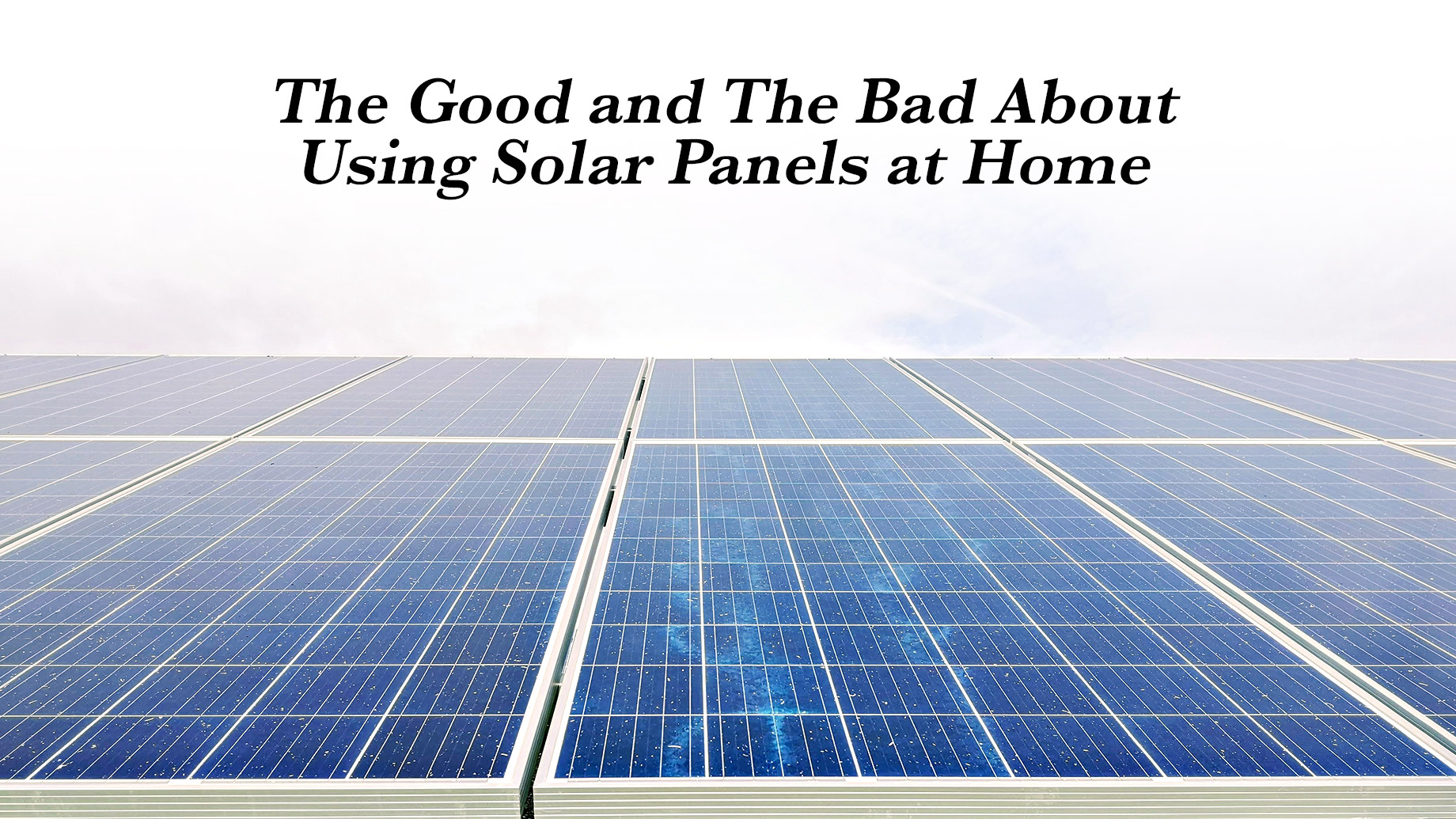
If you’re thinking about going solar for your electricity needs at home, then you’ve probably heard of a lot of marketing campaigns for and against solar panels. To help you make the right decision, you can’t just believe every good and bad thing that salesman could have been spilling out when talking about the system.
Instead of having to go through tons of articles, we’ve compiled everything good and the possible drawbacks of using a solar panel system at home.
The Good: It lowers your electricity bill
Solar power is known to be far less expensive compared to electricity rates for traditional power providers across the board. Why? Well, unlike the usual generation costs, since you’re the one farming your own electricity, it’s not that high. You are no longer dependent on an electric utility service; And since solar panels typically last almost 4 decades, you’re assured of lower electricity costs for most of your life.
The Bad: It has high upfront costs
Of course, installing solar panels has its downside, too. Unlike the regular power utility that makes you pay almost virtually nothing upfront, solar panels actually cost a bit to have installed on your roof or in your backyard. This cost may be prohibitive for most homeowners and is probably the reason why some homes haven’t made the switch yet, but it really depends on your situation. If you are willing to pinch your pockets for a while to get this thing going, then you’ll find out that it’s worth every penny spent.
The Good: Solar power helps save the environment
Going solar will forever be one of the best green living trends out there due to its ability to help you reduce your carbon footprint at home. As a renewable energy source, solar panels are one of the best ways you can help the environment since you’re no longer tapping traditional electricity sources that use fossil fuel to get them going.
The Bad: Doesn’t work for all roofs
Truth be told, having solar panels installed is easier said than done. If you don’t have a big enough budget, then you might be forced to install solar panels by yourself, which makes it a bit of a challenge. Plus, even if you have the cash to spare to hire a reputable installer, that doesn’t mean it would work outright. A major factor that could hinder your switch to solar is the kind of roof you have (or if you have any roof at all).
For homeowners, you have to first assess the roofing of your house to see whether it could withstand a few bolts, panels, and inverters installed directly on top of it. Otherwise, you have to make a few repairs first or you might be forced to install solar on the ground, which isn’t the ideal setup.
The Good: It’s a great investment for your property
Many investment properties and homeowners alike are going solar not solely because of the environmental benefits of the system, but because it increases the value of the property. Since solar panels are known to withstand the test of time, these systems make property prices skyrocket once installed. That’s aside from the tax rebates that some states actually hand out solar property owners, too.
The Bad: Not particularly nice if you’re planning to move in the near-term
Even if solar panels are great investment moves, you have to understand that it all depends on how long you can wait for the ROI. It has already been established that solar panels cost quite an amount upfront. This means that it can take a while for you to get a return on that initial spending. If you don’t plan to stay too long in your current house, then it’s probably not the best move for you to go solar, unless the reason you’re doing so is to fetch a higher price on the property market.
Knowing full well about all the pros and cons of going solar, it’s easy to say that the benefits of the system far outweigh its so-called drawbacks. However, the final decision is yours to make.